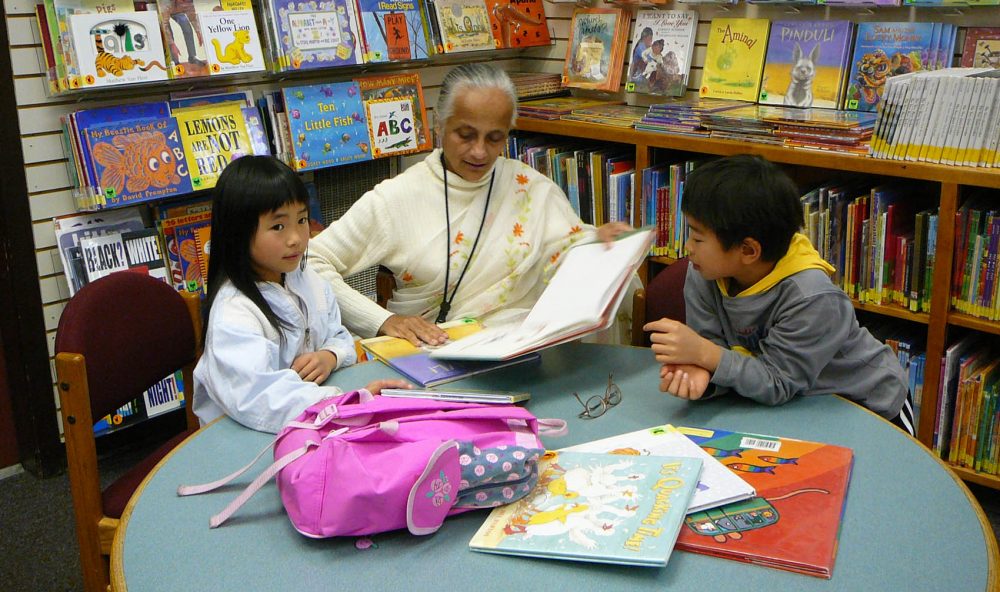Advertisement
School Volunteers Can Help Close The Achievement Gap

COMMENTARY
Fifty years ago, it was an idea that was both simple and revolutionary: School districts would need help closing a growing achievement gap between students from different neighborhoods and racial backgrounds, and members of the community could play a pivotal role in closing this gap. Building on this premise, School Volunteers for Boston — known today as Boston Partners in Education — opened its doors, beginning a partnership with the Boston Public Schools that continues to this day.
At a time when schools are the center of attention with discussion of the charter cap, there’s one thing everyone can agree on: Bringing volunteers into any school can make a real difference in its students’ lives.
In the past five decades, Boston Partners in Education has evolved, enriching tens of thousands of students’ lives with the involvement of just as many academic mentors. Today, Boston Public Schools benefit from nearly 600 volunteer mentors who enter our city classrooms annually, focusing their energy, talents and heart to improve the lives of 3,000 students who have been nominated by their teachers as likely to benefit from individualized support. The impact of the organization can be seen in over half of Boston’s schools and is routinely cited by teachers as a program that not only changes student lives, but supports teachers in their work.
Despite great progress, the work of the organization is even more relevant today, as we see our country struggle with racial and income inequality at staggering rates. According to a January 2016 Brookings Institution report, a disparity exists in Boston between the top 5 percent and the bottom 20 percent of income earners. Our wealthiest individuals earn nearly 18 times more than the poorest members of our community.
By addressing the impact of these unrelenting inequities in our schools, we have perhaps our greatest opportunity to turn the tide on a challenge that frequently seems overwhelming and unsolvable.
After 50 years, we know that change does not happen overnight; the gaps we face have formed over decades and will take time to undo. Instead of expecting immediate results, we should focus on celebrating the small victories, taking progress day by day, remaining nimble and preserving our ability to react to the ever-changing needs of our public school classrooms. Most important, we should get involved. Every member of the community can play a role in closing achievement and opportunity gaps. Here’s how.
Consider a wise investment.
Writing a check is an easy way to feel as though you are making a worthy contribution. But the impact of volunteering in our public school system is invaluable. Time is precious, but when spent improving the lives of children, it’s priceless.
Get personal.
We rely on technology for so much in life, but technology will never outpace individualized attention in helping people learn. Personal relationships, especially mentoring relationships for young developing minds, are essential. Research has shown that when these relationships flourish, the gaps shrink and young people are more successful both in and out of the classroom.
Learn from teachers.
The students we can serve best are identified for us by those who understand their capabilities best: their teachers. Rather than forcing new schoolwide programs or adding a set number of aides to each classroom, let’s trust the judgment of our educators and work with students who will experience the greatest benefit.
Meet your neighbor(hood)s.
Boston is made up of unique neighborhoods. By understanding our neighborhoods and the people who call them home, we can solve many challenges and ensure that all of us, now and in the future, enjoy a great life in a wonderful city.
Take action.
Our business and city leaders know that building a skilled, diverse workforce starts not in the college years but in the elementary ones, and that building a sustainable workforce requires educating the next generation. Together, those two factors should lead civic leaders and business owners at every level to further their contributions to our city by supporting their employees in engaged mentoring.
As we celebrate 50 years of partnership and progress, we are also working to start the next 50 years strong. By 2018 we aim to serve 25 percent more students in the Boston Public Schools system. To accomplish this goal, we call on the Boston community to step up and join Boston Partners in Education to make a difference in our public schools.
Martin J. Walsh is the mayor of the city of Boston. Pamela Civins is the executive director of Boston Partners in Education.